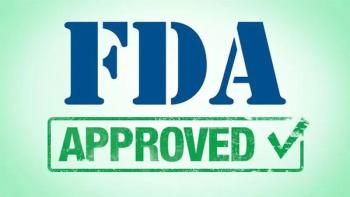
Maintenance Avelumab Has Similar Efficacy in Real World for Urothelial Cancer
Patients with metastatic urothelial cancer treated with frontline maintenance therapy with avelumab following platinum-based chemotherapy in the real-world setting had similar outcomes as observed in the JAVELIN Bladder 100 trial.
Patients with locally advanced or metastatic urothelial cancer who received frontline maintenance therapy with avelumab (Bavencio) following platinum-based chemotherapy in routine clinical practice experienced similar progression-free survival (PFS) and overall survival (OS) outcomes as those treated in the pivotal phase 3 JAVELIN Bladder 100 trial (NCT02603432), as demonstrated in results from the US PATRIOT-II trial examining real-world outcomes with the immune therapy in the United States.1
Results from the trial, which were presented at the
“These real-world results further support the use of avelumab frontline maintenance in patients with locally advanced or metastatic urothelial cancer who are progression free following first-line platinum-based chemotherapy,” the study authors wrote in the poster.
PATRIOT-II was a US-based, retrospective chart review study conducted across 37 community oncology and academic affiliated centers.1 A total of 160 patient records were included in the analysis. To be eligible for inclusion, patients had to be at least 18 years of age at diagnosis and have histologically confirmed locally advanced or metastatic disease without progression on frontline platinum-based chemotherapy. They also must have started avelumab as first-line treatment.
Patients were followed from the start of platinum-based chemotherapy until 52 weeks after the start of avelumab, death, or end of study.
In addition to PFS and OS, investigators evaluated treatment patterns, reasons for treatment discontinuation, adverse effects (AEs), immune-related AEs (irAEs) and high-dose steroid use, as well as health care resource utilization, hospitalizations, emergency department visits, real-world time to treatment discontinuation, and real-world time to next line of treatment.
Regarding baseline characteristics, the median patient age was 70 years (range, 40-90) and more than half were male (76.9%). Most patients were White (89.4%), non-Hispanic or Latino (78.1%), and had an ECOG performance status of 0 (42.5%) or 1 (33.1%). A similar percentage of patients had creatinine clearance of at least 60 mL/min (40.0%) or less than 60 mL/min (41.3%). Approximately half of patients had unknown PD-L1 status (51.9%), visceral metastasis at the start of platinum-based chemotherapy (44%) and had received cisplatin (62.5%) as opposed to carboplatin and gemcitabine (37.5%). Additionally, most patients achieved complete or partial response to frontline chemotherapy (81.3%); 10.6% had stable disease as their best response and 8.1% of responses were unknown.
Landmark analysis demonstrated that the 6-, 12-, 18-, 24-, 30-, and 36-month PFS rates from the start of avelumab were 48.1%, 33.0%, 27.3%, 21.8%, 19.2%, and 19.2%, respectively. The 6-, 12-, 18-, 24-, 30-, and 36-month OS rates from the start of avelumab were 88.1%, 75.7%, 62.5%, 53.4%, 44.0%, and 31.4%, respectively.
Regarding the real-world OS from the start of platinum-based chemotherapy, the 6-, 12-, 18-, 24-, 30-, and 36-month rates were 99.4%, 85.6%, 74.9%, 65.4%, 50.9%, 44.9%, respectively.
In terms of safety, 39% of patients had an avelumab-related AE, 22% had an irAE, 14% received high-dose steroids due to any treatment-related AE (TRAE), 8% were hospitalized because a TRAE, and 10% discontinued therapy because of an AE. Study authors noted that the rate of avelumab-related AEs in the real-world experience was lower than the rate reported in the JAVELIN Bladder 100 trial (78%). However, they stated that this was likely because AEs were not prospectively evaluated in the real-world experience.
The most common TRAEs were fatigue (4.4%), hypothyroidism (4.4%), anemia (3.8%), infusion-related reaction (3.8%), nausea (3.8%), elevated creatinine (3.1%), diarrhea (2.5%), and rash (2.5%).
During maintenance therapy with avelumab, 28% of patients were hospitalized for a mean of 11.5 days per person-year. Avelumab-related AEs were the primary reason for admission (8%), followed by disease progression, surgical procedures, and comorbidities. A total of 16% of patients were hospitalized for a mean of 3 days per person-year during the platinum-based chemotherapy period.
During the platinum-based chemotherapy and avelumab periods, 7% and 8% of patients required an emergency department visit, respectively. Health care resource utilization was higher during and 90 days after patients finished avelumab compared with the platinum-based chemotherapy period, which the study authors attributed to potential cofounders including disease progression.
References
- Grivas P, Barata P, Moon H, et al. Avelumab first-line maintenance therapy for locally advanced/metastatic urothelial carcinoma: Results from the real-world US PATRIOT-II study. J Clin Oncol. 2024;42(suppl 4):697. doi:10.1200/JCO.2024.42.4_suppl.697
- FDA approves avelumab for urothelial carcinoma maintenance treatment. FDA. June 30, 2020. Accessed March 1, 2024.
https://www.fda.gov/drugs/drug-approvals-and-databases/fda-approves-avelumab-urothelial-carcinoma-maintenance-treatment - Sridhar SS, Powles T, Gupta S, et al. Avelumab first-line (1L) maintenance for advanced urothelial carcinoma (UC): Long-term follow-up from the JAVELIN Bladder 100 trial in subgroups defined by 1L chemotherapy regimen and analysis of overall survival (OS) from start of 1L chemotherapy. J Clin Oncol. 2023;41(suppl 6):508. doi:10.1200/JCO.2023.41.6_suppl.508
Newsletter
Knowledge is power. Don’t miss the most recent breakthroughs in cancer care.































































































